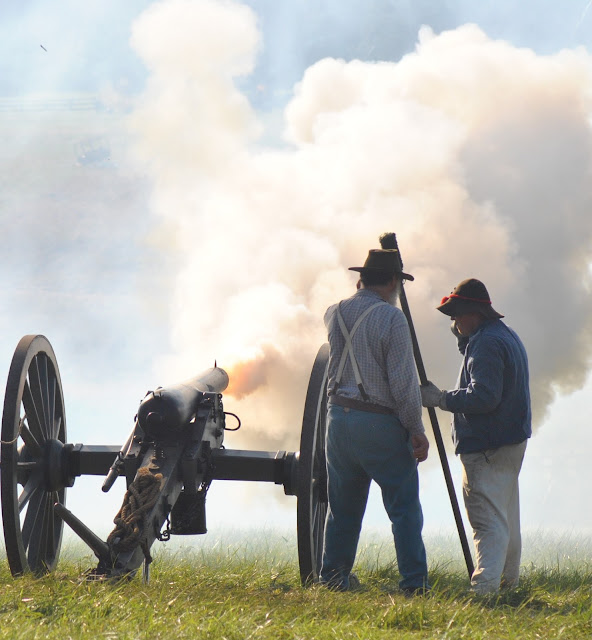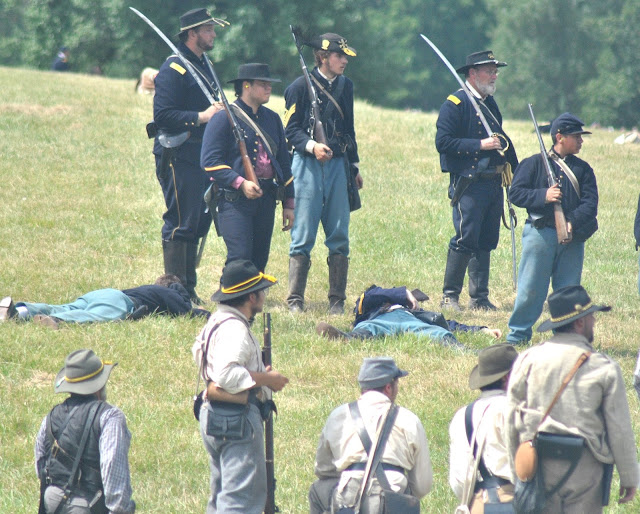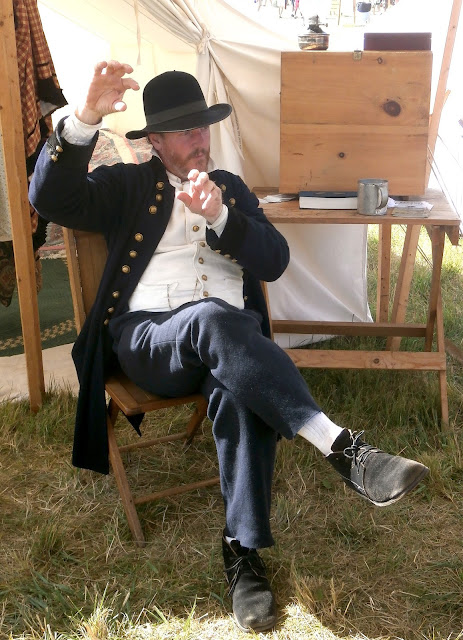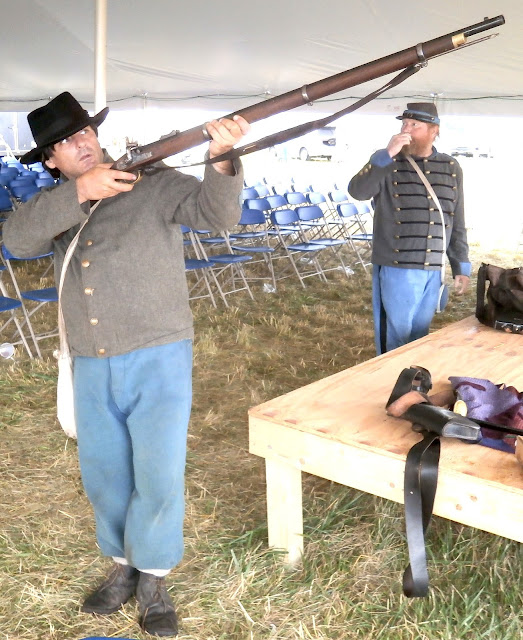Battle of Gettysburg 150th Anniversary
It was a hot day on July 1, 1863 near the small Pennesylvania town of Gettysburg. Little did the citizens of Gettysburg know that their town would soon be caught up in the great tide of history to become a decisive moment of the American Civil War.
Gettysburg is a name that echoes through ages where even the most oblivious to history have heard of it. It was the largest battle of the Civil War and the largest ever fought in the Western Hemisphere. After three days of fighting, there were over 50,000 casualties.
The biggest battle of the war happened though by accident and not part of some grand strategic design. On the first day, Confederate troops encountered Union troops near Gettysburg not the local militia they expected. Union Cavalry General Buford was screening the Army of the Potomac and he saw that if the Confederates got control of the heights south of Gettysburg it would be tough to dislodge them. He fought a delaying action which bought time for the Union to bring up more troops.
The first day of fighting was fierce and there were 15000 casualties on both sides. The Confederates pushed the Union out of the town but failed to capture the heights. If they had done so there may not have been the climatic Battle of Gettysburg that we know today.
On the second day with more troops have arrived on both sides the battle began in earnest. General Robert E Lee attacked the flanks of the Union Army but he was hindered by a lack of military intelligence on the ground in the area and the positioning of the enemy. The eyes and ears of the Confederate army JEB Stuart had not yet returned from what his critics saw as his galavanting around. Lee's attacks would ultimately fail though one incompetent Union general tried to accomodate them. This was Major General Daniel Sickles who moved his men forward out of their assigned position. As a result he lost a leg and his force was cut to pieces.
The most famous incident of the day was the defense of the far left flank of Little Round Top particularly by the 20th Maine led by Colonel Joshua Chamberlain. They repulsed several assaults by Confederate forces until low on ammo they mounted a desperate bayonet charge which swept the Confederates down the hill and captured a number of them.
The second day ended with both sides having taken a beating. The casualties rate was similar to the first day however the second day most of the fighting had been in six hours whereas the first day's battle had been an all day affair.
On the third day, Union Commander General George Meade moved troops to the center predicting Lee would strike there. And he was right. The third day saw the climatic Pickett's Charge which became the subject of many stories and song. 12500 Southern men moved across an open field and into eternity as Union cannons and later musketry tore into them with murderous fire. The charge failed with over 50% casualties. It is said that Pickett never forgave Lee although Lee took responsibility of the charge's failure.
On July 4th the Army of Northern Virginia limped southward never to mount another offensive campaign. It would be almost another two years before the war would be concluded but for many the Battle of Gettysburg was the beginning of the slow end of the Confederate cause.
On November 19, 1863 Abraham Lincoln arrived in Gettysburg as part of the dedication ceremony for the soldiers' cemetery of those who fell there. He gave the famous Gettysburg Address which echoes down to us today:
"Four score and seven years ago our fathers brought forth on this continent a new nation, conceived in liberty, and dedicated to the proposition that all men are created equal.
Now we are engaged in a great civil war, testing whether that nation, or any nation so conceived and so dedicated, can long endure. We are met on a great battlefield of that war. We have come to dedicate a portion of that field, as a final resting place for those who here gave their lives that that nation might live. It is altogether fitting and proper that we should do this.
But, in a larger sense, we can not dedicate, we can not consecrate, we can not hallow this ground. The brave men, living and dead, who struggled here, have consecrated it, far above our poor power to add or detract. The world will little note, nor long remember what we say here, but it can never forget what they did here. It is for us the living, rather, to be dedicated here to the unfinished work which they who fought here have thus far so nobly advanced. It is rather for us to be here dedicated to the great task remaining before us—that from these honored dead we take increased devotion to that cause for which they gave the last full measure of devotion—that we here highly resolve that these dead shall not have died in vain—that this nation, under God, shall have a new birth of freedom—and that government of the people, by the people, for the people, shall not perish from the earth."
In 2013 the 150th Anniversary of the famous battle was held with thousands of Civil War re-enactors participating. Different aspects of the three day battle were re-enacted culminating in Pickett's Charge. It was probably the largest gathering of Civil War re-enactors ever and like the famous battle never been seen again.

















































Comments
Post a Comment